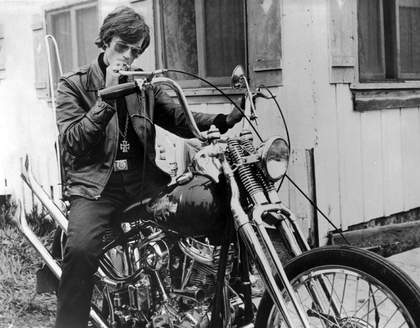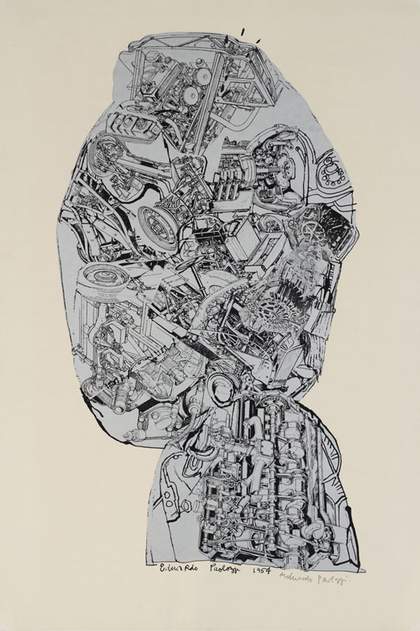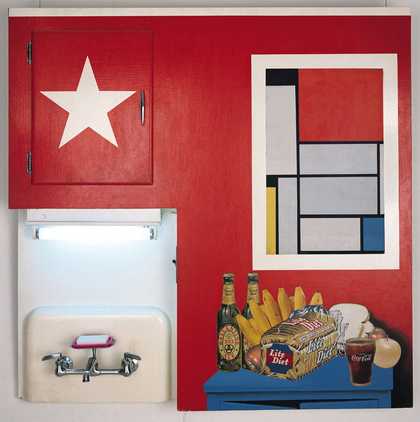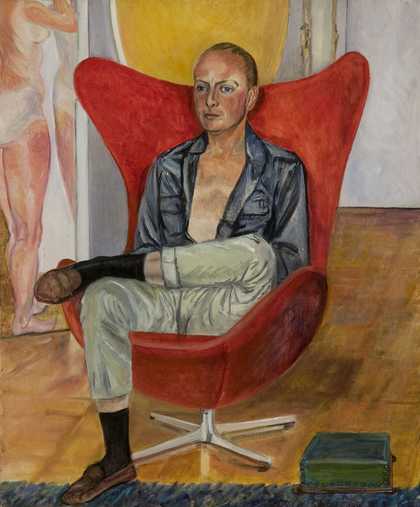Tate Research Workshop
21 June 2013
Convenor: Courtney J. Martin
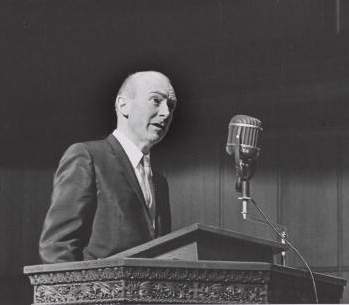
Lawrence Alloway speaking at Oberlin College 1965
Getty Research Institute, Los Angeles
Writer, curator and critic Lawrence Alloway (1926–1990) is best known for his contributions to curating and art criticism after the Second World War, first in London and, later, in America. From his late teens, he was a prodigious writer on art, film and the culture of contemporary art. His critical writing in various periodicals (Artforum, Art International, Art News, British Movie, and the Nation) was an important contribution to British and American conversations on art for nearly forty years. So, too, were the exhibitions that he curated for the Institute of Contemporary Arts, the Museum of Modern Art, the Solomon R. Guggenheim Museum and elsewhere (these exhibitions were almost always accompanied by long form essays that differed in style from his efficient, direct criticism). His writing practice demonstrated his commitment to working with living artists and to understanding art as an evolving cultural form. His extant body of work is illustrative of a unique approach to art writing as a document of the art object, the artist, the moment of historical engagement and his persona.
Expanding on recent scholarship on Alloway, this research seminar attended to his interactions with artists, other art critics and exhibitions through a group of papers that raised questions about the role of writing in each of these enterprises. How did he, as a critic, form relationships with artists? How did those relationships affect his published criticism? Did his critical relationships differ from those cultivated through exhibitions? What was the character of his interactions with other critics, such as Herbert Read, Clement Greenberg, Harold Rosenberg or Max Kozloff? Similarly, how did he engage with other curators (Kynaston McShine, Bryan Robertson or William Seitz) in both his curatorial and critical writing? Additionally, the workshop also addressed the ways that researchers have approached scholarship in these areas (oral histories, curatorial files, critical writing, etc.) and how archives might better facilitate research and scholarship on art writers and art writing.
Courtney J. Martin

